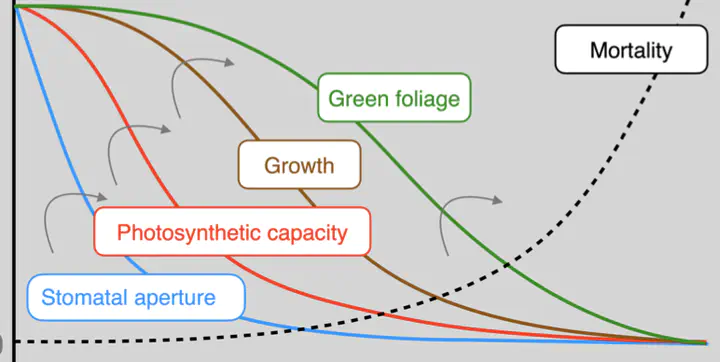Ecological data assimilation

In several projects, we are working towards assimilating diverse data into mechanistic ecosystem models.
Currently, we are using forest inventory data, in combination with eddy covariance flux measurements from an intensive monitoring site in Switzerland (Lägern) for calibrating our model (rsofun with LM3-PPA, see Data and code) using Bayesian statistical methods.
A MSc thesis by Ana Roldan is scheduled to start in November 2021 that extends this model-data integration framework. The research question of this thesis will be to investigate feedbacks between photosynthesis and growth, and in particular whether cold-limitation on growth feeds back on photosynthesis and thus induces a temperature-driven sink limitation in forests. To investigate this, we are using data from the intensive monitoring sites at Lägern and Davos.
With planned research, we are aiming to extend model-data integration on the basis of diverse ecological data further. The aim is to accurately simulate impacts of drought and heat stress on CO2 assimilation, transpiration, tree growth, and mortality. Using complementary observations and mechanistically accounting for the links between processes will yield new insights - key for forecasting climate extreme event impacts in Swiss (and other) forests.